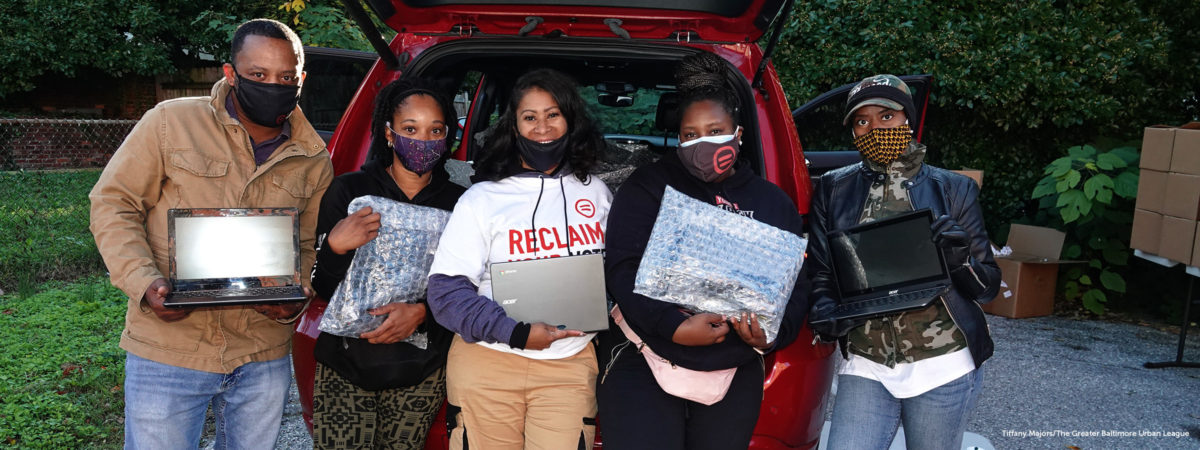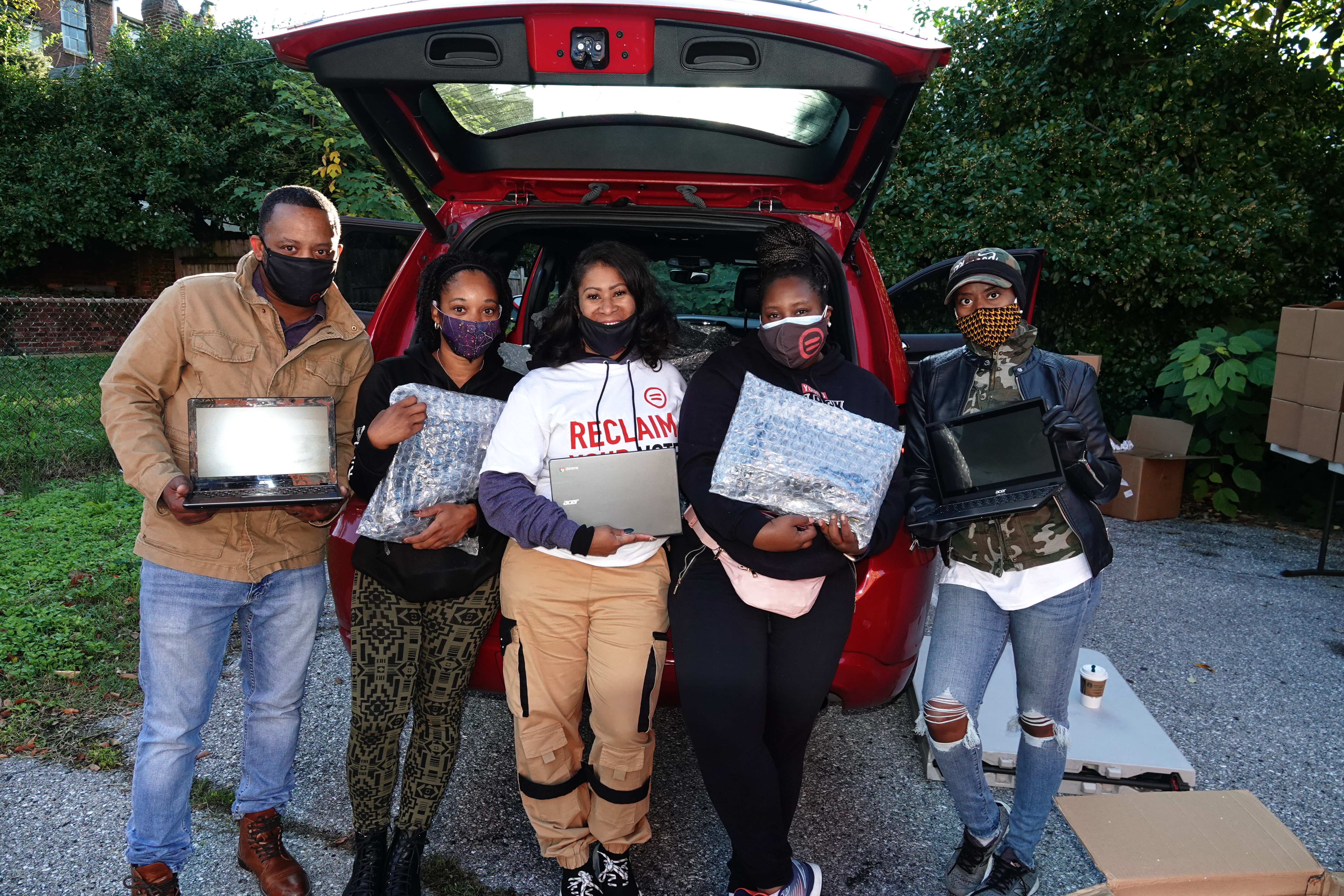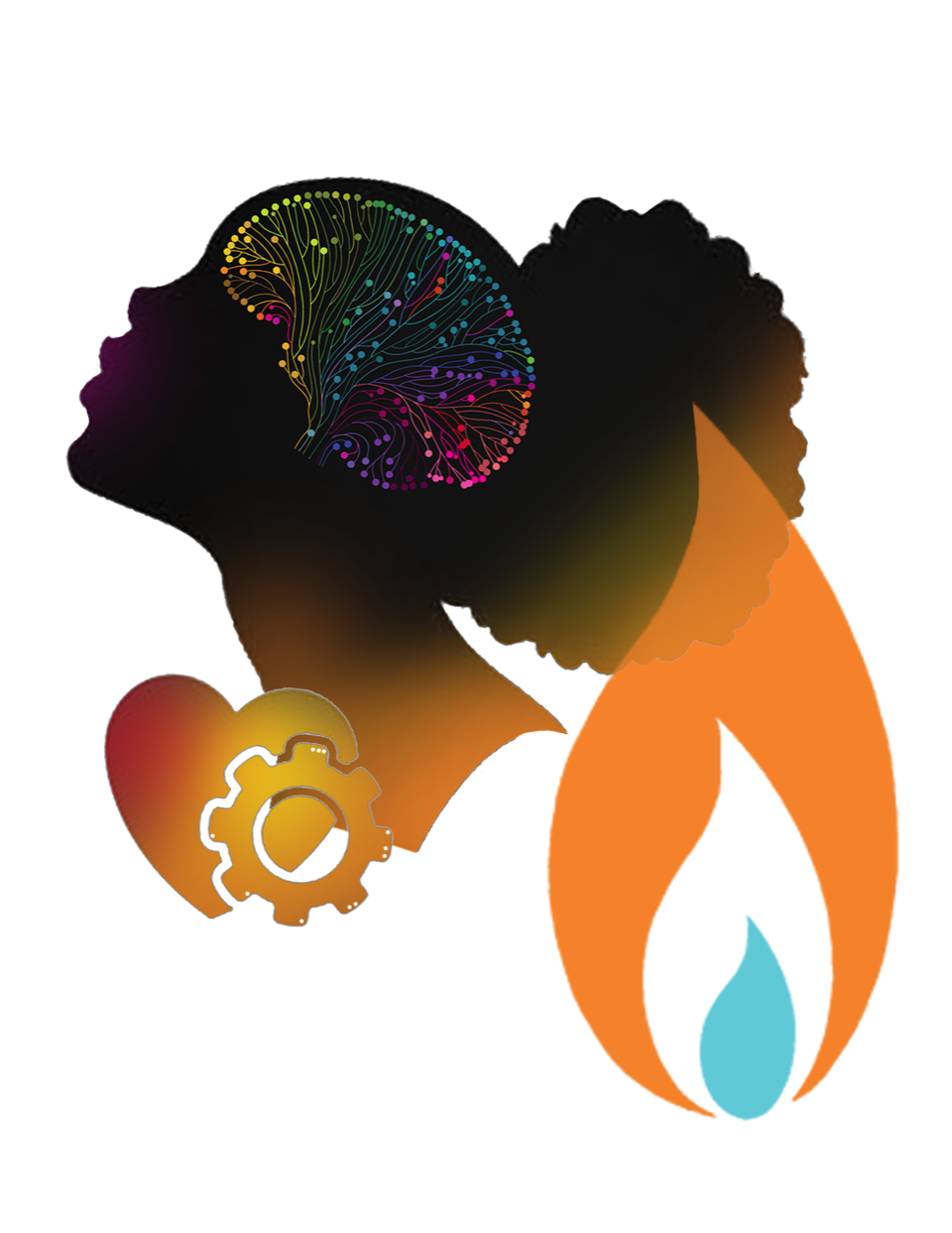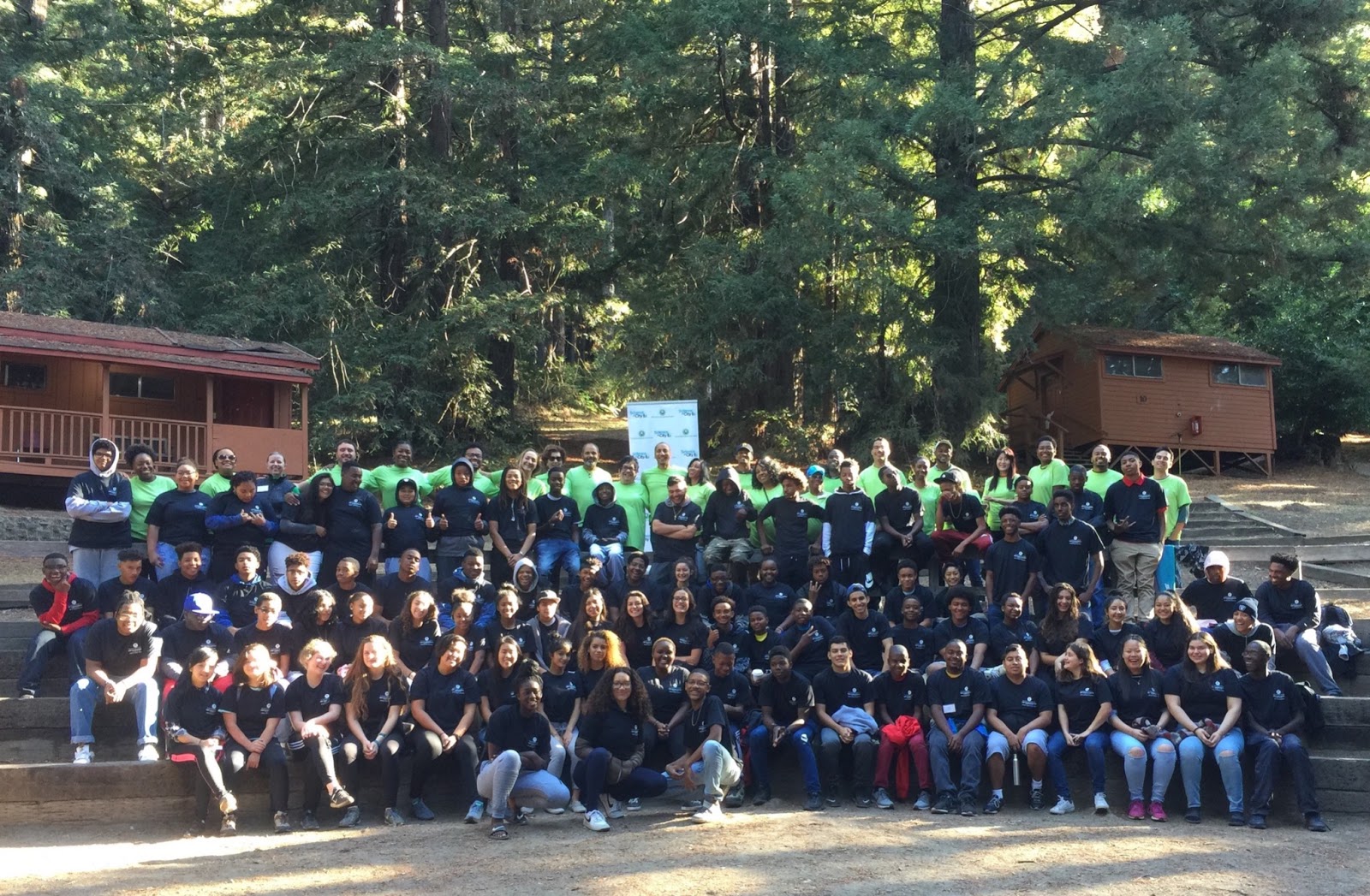
May 18, 2021 | By Tiffany Majors, Nakeyshia Kendall Williams and Kevin L. Nichols
The Center for Inclusive Innovation’s Community Advisory Council is made up of social change leaders who work collaboratively with the Center, offering guidance on community-driven design, network building, and more. In the wake of COVID-19, these advisors and their organizations have been working around the clock to address the needs of the teachers, students, and families of color in the communities they serve. Learn more about some of their best practices related to resource distribution, professional learning, and virtual engagement during the pandemic, in their own words.
GBUL has remained dedicated to scholars, families, and educators throughout the pandemic. We have continued to offer our college and career readiness initiative, The Saturday Leadership Program, in a virtual setting in which we expose scholars to different college environments. In addition, we have developed a youth-led event series, The Kickback Conversation Series. This was created to give youth activists in Baltimore City a platform to meet with community leaders and challenge the status quo to create a better version of the new norm through conversation. We have also provided virtual enrichment events such as virtual dance parties and movie screenings.
GBUL continues to remain active on four advisory work groups to advocate for many educational requirements of the 2021 legislative session (i.e., Senate Bill 546, Bill 526, Bill 477, Bill 913, Bill 1, and Bill 71). Throughout the month of April, we offered free mindfulness and meditation classes to scholars, families, and educators, thanks to our partnership with Holistic Life Foundation. In addition, we have also had the privilege of being able to host large distribution events in which we have given away laptops, nutrition boxes, and supplies for persons experiencing homelessness.

Greater Baltimore Urban League laptop distribution event
At the outset of the COVID-19 pandemic, MindCatcher witnessed the tremendous uncertainty that school site leaders faced while leading their staff, youth, and families, and realized these leaders would need more leadership and wellness support to create the generative learning environments that our youth deserve. We also knew from a recent organizational analysis that one of MindCatcher’s strengths is the ability to support educators to address challenges. Further research demonstrated site leaders of color tend to serve the most vulnerable communities. In fall 2020, MindCatcher launched Collective Support, an affinity-based leadership and wellness cohort.
Collective Support offers school and after-school site leaders of color the opportunity to investigate their own practice and design new ways of thinking and being. The MindCatcher team supports the cohort virtually through participatory, hands-on professional development. Participants utilize learnings to co-design a mindset playbook that addresses a challenging problem of practice impacting their ability to cultivate bold, generative learning environments for youth, alongside a community of like-minded education leaders. We are synthesizing our learnings, which will inform programming for our next cohort of site leaders of color in spring 2022.

TSEP is an Oakland-based, social impact venture with Stanford University designed to address the lack of diversity in the tech industry through STEM pipeline programs for underrepresented students of color that lead to technical career pathways. Most people think of nefarious activity when they hear the term “social engineering;” however, TSEP is named after a quote by a famous lawyer, Charles Hamilton Houston, who laid down the framework for the landmark Brown v. Board of Education case who said, “A lawyer is either a social engineer or a parasite on society.” We view the quote as, you are either part of the problem or part of the solution.
Due to COVID-19, all of TSEP’s in-person programs, such as its week-long middle school STEM day camp called Science In The City, its TSEP Overnight Camping Conference, and Global Hackathon with the United Nations to stop human trafficking and cybertheft, had to be converted to virtual experiences. Last year, in conjunction with SLAC National Accelerator Laboratory, Stanford’s School of Education, a donation of free laptops from First Republic Bank, and free PPE from Thermo Fisher Scientific, Science In The City was held virtually and focused on astronomy, biotech, and the human effects of the COVID-19 virus. Moreover, the curriculum of its TSEP Overnight Camp was broken up into 3 parts: 1) work/life balance; 2) technology exposure; and 3) college aspirations. In the technology portion, TSEP held a virtual camp with Fitbit to expose students skills of how to protect their online privacy and the algorithms/mathematics behind converting signals to steps on their wearable devices as well as a three-week long bridge building competition with Liftech Consultants and the Port of Oakland. This summer, TSEP is gearing up for its eighth installment of Science In The City in conjunction with Google and its first weeklong Design Thinking Lab with IDEO.

Pre-COVID, students at the 2019 TSEP Overnight Camping Conference
Want to stay in touch with the Center for Inclusive Innovation? Sign up for updates and opportunities to collaborate on liberatory education innovation projects.
By Lauren McMahon and Heather Dowd